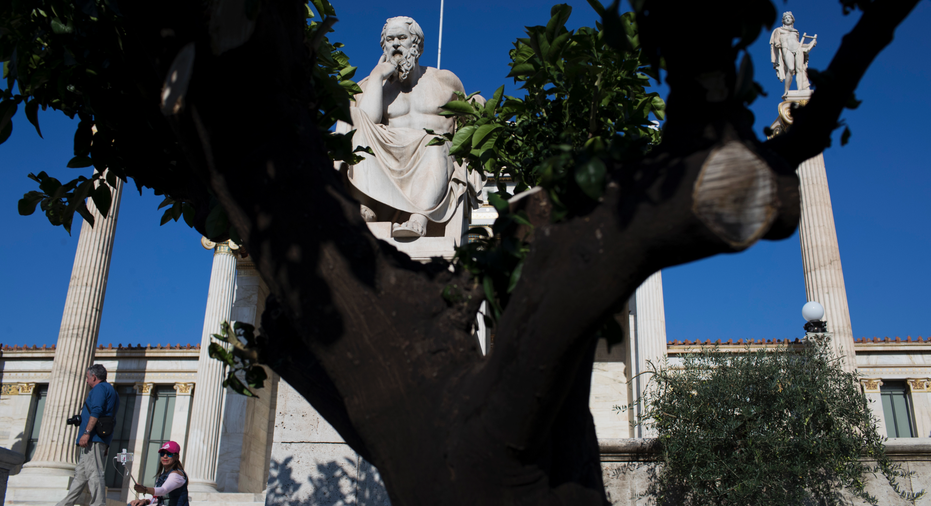Greek state budget sees steady pick-up in economy

ATHENS, Greece – Greece's government on Monday presented what it calls the last of the bailout-era state budgets, predicting economic growth of 2.4 percent and a significant budget surplus in 2018.
In the draft 2018 budget, the economy is expected to expand 1.8 percent this year, up from no growth last year.
The 2018 primary surplus — which excludes the cost of financing debt — is forecast at 3.6 percent. The government has committed to high surpluses for years to come, to secure fiscal sustainability and help pay off the country's crippling debts.
Greece has endured nearly eight years of harsh austerity, required to right its public finances and receive rescue loans from its European partners and the International Monetary Fund. The current program runs out in August 2018, and the government says that will mark the end of international oversight of the country's finances.
"This is the last budget (to be tabled) during the bailout programs," Deputy Finance Minister George Houliarakis said after presenting the draft to Parliament.
He said 2018 budget targets are in line with bailout commitments, and are expected to significantly exceed them in 2017.
A Finance Ministry statement said that the anticipated "significant excess" of this year's savings targets would allow one-off welfare spending to help the worse-off.
The country's cripplingly high public debt is set to increase from 318.7 billion euros ($376 billion) in 2017 to 327.9 billion in 2018. However, the anticipated economic growth means that as a percentage of GDP debt will fall from 176.8 percent in 2017 to 175.6 percent in 2018.
Unemployment, currently the highest in the 19-member eurozone, is forecast to fall from 22 percent in 2017 to 20.8 percent in 2018.
Greece's Parliament is set to debate and vote on the budget in December.



















